Filter by
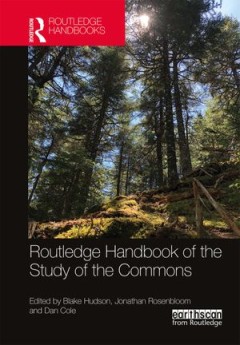
Routledge Handbook of the Study of the Commons
This comprehensive Handbook serves as a unique synthesis and resource for understanding how analytical frameworks developed within the literature assist in understanding the nature and management of commons resources. Such frameworks include those related to Institutional Analysis and Development, Social-Ecological Systems, and Polycentricity, among others. The book aggregates and analyses thes…
- Edition
- -
- ISBN/ISSN
- 9781351669245
- Collation
- 464 halaman
- Series Title
- -
- Call Number
- 800 ROU
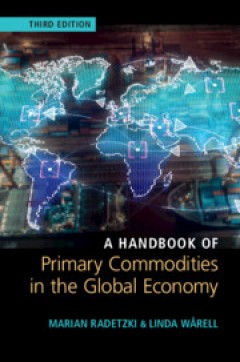
A Handbook of Primary Commodities in the Global Economy
The dramatic price falls of 2014–2015 marked the end of the most powerful and enduring commodity boom since the Second World War. Now in its third edition, this book acts as a guide to the ins and outs of the primary commodity universe. Updates to this edition reflect on the consequences of both China's economic slowdown as its industrialization enters a new, less commodity demanding phase, a…
- Edition
- -
- ISBN/ISSN
- 9781108886529
- Collation
- -
- Series Title
- -
- Call Number
- -
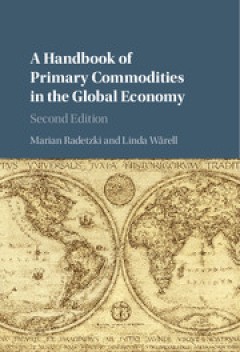
A Handbook of Primary Commodities in the Global Economy
The 2010s have been a dramatic period for most primary commodity markets. Producers suffered heavily as prices fell in response to new supply facilities going into production, juxtaposed against disappointing demand evolution from China in particular, marking the end of the most powerful and enduring commodity boom since the Second World War. This book is a guide to the primary commodity univer…
- Edition
- -
- ISBN/ISSN
- 9781316416945
- Collation
- -
- Series Title
- -
- Call Number
- -
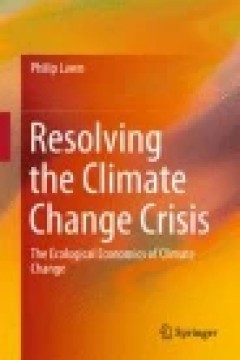
Resolving the Climate Change Crisis
This book explains why the climate change crisis is a symptom of a much larger underlying problem – namely, humankind’s predilection with continuous GDP-growth. Given this starting point, the world’s high-income nations must begin the transition to a qualitatively-improving steady-state economy and low-income nations must follow suit at some stage over the next 20-40 years. Unless they do…
- Edition
- Ed. 1
- ISBN/ISSN
- 978-94-017-7502-1
- Collation
- -
- Series Title
- -
- Call Number
- -

Arbitration and Dispute Resolution in the Resources Sector: An Australian Per…
This book provides a comprehensive Australian perspective on the resolution of resources disputes. In particular, it focuses on the use of arbitration, mediation and adjudication in the resources sector. It concentrates on arbitration as the preferred method of dispute resolution, including international commercial and investor-state arbitration. The book offers fascinating insights into the us…
- Edition
- Ed. 1
- ISBN/ISSN
- 978-3-319-17452-5
- Collation
- XVI, 259
- Series Title
- Ius Gentium: Comparative Perspectives on Law and Justice
- Call Number
- 346.07 ARB a
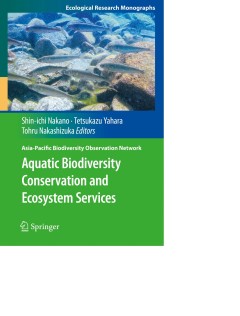
Aquatic Biodiversity Conservation and Ecosystem Services
This volume examines the topic of local biodiversity conservation in the Asia-Pacific region, one of the most rapidly changing areas in the world. With a focus on aquatic systems, this book offers insight on the state of local biodiversity, challenges in management and conservation of biodiversity, and newly developed methods for monitoring biodiversity. In addition, because the service provide…
- Edition
- Ed. 1
- ISBN/ISSN
- 978-981-10-0780-4
- Collation
- XI, 125
- Series Title
- Ecological Research Monographs
- Call Number
- 658.4083 AQU a

Renewable Energy Transformation or Fossil Fuel Backlash
Renewable energy is rising within an energy system dominated by powerful vested energy interests in fossil fuels, nuclear and electric utilities. Analyzing renewables in six very different countries, the author argues that it is the extent to which states have controlled these vested interests that determines the success or failure of renewables.
- Edition
- -
- ISBN/ISSN
- -
- Collation
- -
- Series Title
- -
- Call Number
- -

Green Chemistry and Sustainability in Pulp and Paper Industry
This book features in-depth and thorough coverage of Minimum Impact Mill Technologies which can meet the environmental challenges of the pulp and paper industry and also discusses Mills and Fiberlines that encompass “State-of-the-Art” technology and management practices. The minimum impact mill does not mean "zero effluent", nor is it exclusive to one bleaching concept. It is a much bigg…
- Edition
- -
- ISBN/ISSN
- 978-3-319-18743-3
- Collation
- XVI, 258
- Series Title
- -
- Call Number
- 574 BAJ g
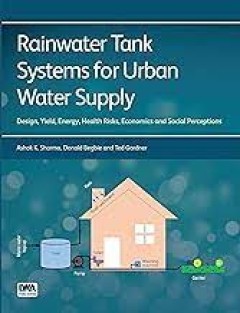
Rainwater Tank Systems for Urban Water Supply Design, Yield, Energy, Health …
Rainwater tank systems have been widely adopted across the world to provide a safe local source of water in underdeveloped rural areas, and as a substitution for mains water for non potable end uses in water stressed urban areas. They also provide flood control in monsoonal climates like Korea or in combined sewer systems like in Germany. The importance of these systems in cities has grown, as …
- Edition
- -
- ISBN/ISSN
- 9781780405360
- Collation
- -
- Series Title
- -
- Call Number
- -
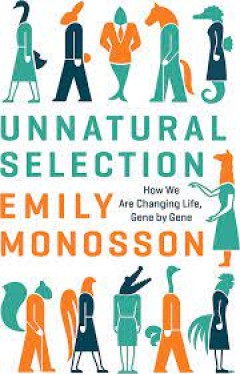
Unnatural Selection: How We Are Changing Life, Gene by Gene
Gonorrhea. Bed bugs. Weeds. Salamanders. People. All are evolving, some surprisingly rapidly, in response to our chemical age. In Unnatural Selection, Emily Monosson shows how our drugs, pesticides, and pollution are exerting intense selection pressure on all manner of species. And we humans might not like the result. Monosson reveals that the very code of life is more fluid than once imagined.…
- Edition
- 1
- ISBN/ISSN
- 978-1-61091-500-7
- Collation
- VIII, 189
- Series Title
- -
- Call Number
- 24 b/w illustrations
 Computer Science, Information & General Works
Computer Science, Information & General Works  Philosophy & Psychology
Philosophy & Psychology  Religion
Religion  Social Sciences
Social Sciences  Language
Language  Pure Science
Pure Science  Applied Sciences
Applied Sciences  Art & Recreation
Art & Recreation  Literature
Literature  History & Geography
History & Geography